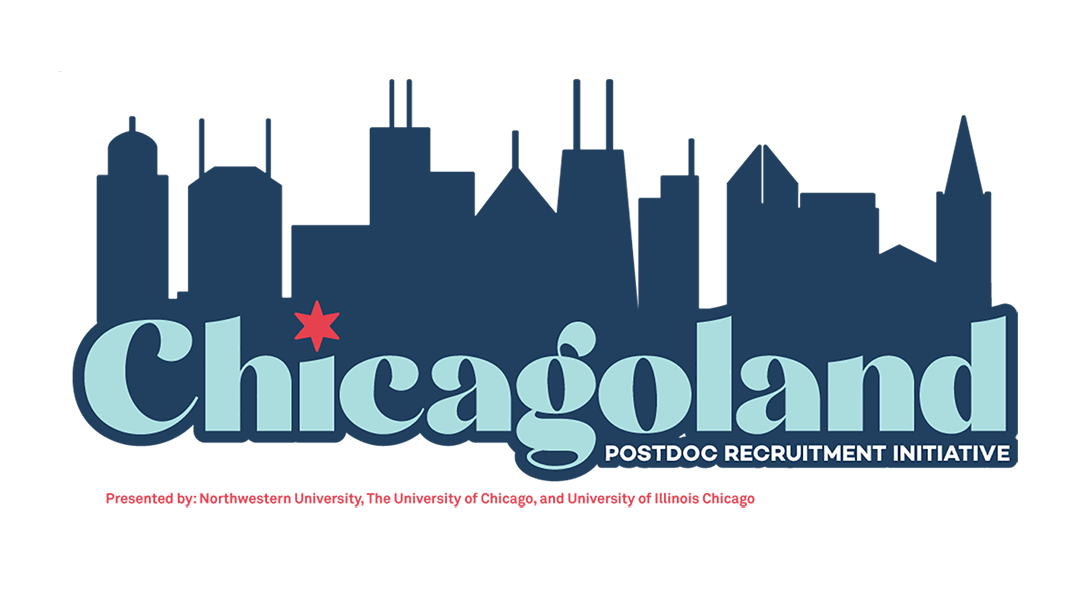Chicago-wide postdoc recruitment event attracts promising young researchers to city

Postdoctoral researchers are a critical piece of the research process, bridging the gap between students and faculty, driving research forward and earning valuable experience for their future career. But unlike student admissions, the process for connecting recent doctoral graduates with postdoctoral research opportunities is decentralized, typically conducted on a lab-by-lab basis and through word of mouth.
For the last three years, an innovative multi-university effort initiated by University of Illinois Chicago has tried a new approach, playing matchmaker for students around the world to work with laboratories around the city. The Chicagoland Postdoctoral Recruitment Initiative, a collaboration between UIC, Northwestern University and the University of Chicago, combines career development panels and facilitated one-on-one meetings with faculty to help early-career scientists find their new research home.
In the first three years, more than 200 prospective postdocs – many from underrepresented groups in STEM fields – have participated in the online program, leading to hires at all three institutions.
“The idea was, let’s work together to keep talent in the city, but also bring people to Chicago,” said Valerie Fako Miller, director of the Office of Postdoctoral Affairs at UIC.
Over two days each October, accepted participants join for two days of virtual events, including sessions on navigating the postdoc search process, how to prepare for interviews, how to find good mentors and how to get the most value from your postdoc years. Participants also get the chance to speak with current or former postdocs from all three institutions, asking questions about Chicago and the university environment.
“We really wanted to provide this educational component to help the participants make better choices in their job search,” Miller said. “Our hope is that the information that we share will be beneficial for them, no matter where they go.”
The second phase of the initiative is a series of matched one-on-one meetings between prospective postdocs and faculty members. Each year, the organizers recruit roughly 150 faculty volunteers from across UIC, Northwestern and UChicago, asking each to provide descriptions of their research, past postdoc trainee outcomes and statements about membership and diversity, equity and inclusion. The information is posted on the initiative website, and applicants select the faculty members they are interested in meeting with.
After the matches are made, each pair schedules a time to talk – not a formal job interview, but an open-ended conversation about openings in the faculty member’s lab, research and training at their institution, career advice and any other topics they choose. The arrangement benefits both parties, Miller said, with the faculty given the opportunity to not just recruit, but also represent their institution and mentor young researchers.
The idea for the initiative came from Joanna Groden, Vice Chancellor for Research at UIC, who participated in a similar program in her previous role at Ohio State University. But instead of recruiting for just one school, Groden and Miller decided to invite the other local universities, expanding the pool of faculty available to meet with participants.
Planning started in the first year of the COVID pandemic, necessitating a virtual format. But the initiative has kept their programming online ever since, in part because it makes it easier for prospective postdocs to participate without traveling or using valuable time as they finish their degrees.
Both the virtual format and the matchmaking structure helps the initiative meet another goal – reducing the barriers facing groups such as women, minorities, LGBTQ individuals, people with disabilities, first-generation college students and veterans as they start their post-graduate STEM careers. Often, the informal, word-of-mouth application process for postdoctoral positions benefits the already advantaged and makes it harder for less-connected students to find their ideal job.
"It's a very opaque process, and bias can be a big part of it,” Miller said. “For graduate students who are already at well-known institutions working with well-known faculty members, it’s a lot easier, because their advisor can just connect them to their own network.”
In the first two years, the initiative led directly to the hiring of ten postdocs across the three schools, and attracted participants from around the United States and 17 countries. The program has also inspired similar multi-university initiatives in Philadelphia and Houston, while other states and cities have reached out to the organizers for advice on starting their own. Miller hopes that the model will continue to spread and make this critical step in a scientific career more equitable and transparent.
“It's not just about increasing our numbers at UIC and in Chicago,” she said. “The graduate student to postdoc transition is such an important piece of diversifying faculty, and yet it’s often ignored. So it’s really about better preparing people, especially from underrepresented groups, to enter the postdoc workforce.”